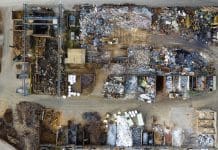The South Wales Industrial Cluster (SWIC) deployment project, led by Costain, has been granted phase two funding of nearly £20m
Phase Two of the project involves engineering studies to explore the routes to decarbonisation, including the use and production of a hydrogen supply, carbon capture usage and storage (CCUS) and CO2 shipping from South Wales. This would be the first CO2 shipping industry in the whole of the UK and would create an entirely new industry for the region.
The scheme is aligned to the government’s ten-point plan for a green industrial revolution, and will include the engineering studies into:
- The production and distribution of hydrogen from both renewable energy and imported LNG which is distributed by repurposing the existing gas network
- Cleaner electricity production using carbon capture and/or hydrogen-rich natural gas
- Industrial carbon capture, usage, and storage technologies along the South Wales coast as well as the transportation and shipping of CO2
- Large industry decarbonisation through fuel switching (substituting one energy source for a greener, cleaner alternative), process efficiencies and the production of cleaner transportation fuels.
The project is supported by a range of partner organisations from the industrial, academic, law, public and private sectors working across the region to create the world’s first net-zero emissions industrial zone.
As well as contributing to the UK’s carbon reduction commitment, the project will enhance the UK’s ability to locally manufacture low or net-zero carbon cement and steel products, helping to drive the low carbon future of UK construction and other sectors.
Creating a low-carbon industrial sector
Dr Chris Williams, head of industrial decarbonisation, Industry Wales, said: “Our ambition in SWIC is to create a world-leading truly sustainable cluster, so this deployment project, led by Costain and part funded by Innovate UK, will form an important step for us to realise that ambition.
“Each of our industries faces a transformational change to reach net-zero. This project starts to develop the necessary low carbon power, hydrogen and CCUS infrastructure that will be so important to maintain and grow net-zero industry in South Wales.
“Business and Energy Secretary, Kwasi Kwarteng, added: “We were the first major economy to put into law our target to end our contribution to climate change, and today we’re taking steps to be the first major economy to have its own low-carbon industrial sector.
“While reaching our climate targets will require extensive change across our economy, we must do so in a way that protects jobs, creates new industries and attracts inward investment, without pushing emissions and business abroad.
“Ahead of COP26, the UK is showing the world how we can cut emissions, create jobs and unleash private investment and economic growth.
“Today’s strategy builds on this winning formula as we transition low carbon and renewable energy sources, while supporting the competitiveness of Britain’s industrial base.”






![[VIDEO] Local planning inspector recruitment to begin in earnest in new year A drive to recruit local planning inspectors will begin in the new year](https://www.pbctoday.co.uk/news/wp-content/uploads/2025/12/iStock-2159482095-2-218x150.jpg)







